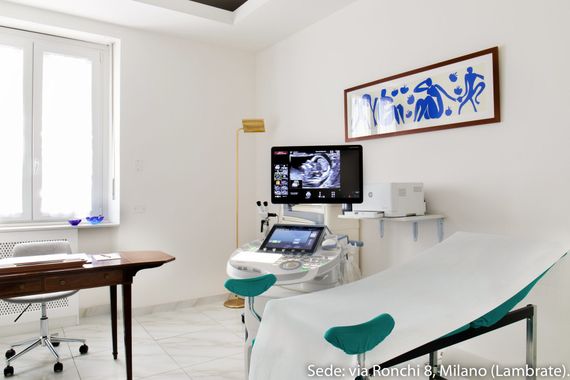FETAL DNA TESTING (PRENATAL, NONINVASIVE GENETIC TESTING), NIPT
TO WHOM IS IT SUITABLE?

It can be offered to all women; in particular, it is useful in pregnancies in which invasive diagnosis is contraindicated, in first-trimester screening with intermediate/high risk outcome (altered biochemical tests), in mothers with advanced age, in couples with family history of chromosomal abnormalities, in mothers with polyabortion, in the case of single or bigeminal bicorial pregnancies obtained by the different IVF techniques. In contrast, it is not reliable in monochorionic pregnancies, in the case of 3 or more fetuses.
The Tests, currently available are different: PRENATALSAFE from the GENOMA group, NEOBONA from the SYNLAB group, AURORA from the SORGENTE group. All have processing times, broadly similar (7-10 working days on average).
Prices vary depending on the completeness of the information TEST provides.
Book an examination
OUR OFFICES
CHOOSE WHERE TO UNDERGO SCREENING
MILAN:
- Studio Ginecologico Milano, in Via Ronchi 8, mezzanine floor, in front of train station exit and metro Lambrate, Side via Rombon. Access for people with disabilities. MELEGNANO:
- Medical office located downtown at 63 Castellini Street, staircase f, 9th floor, 3 elevators present, access for people with disabilities.







